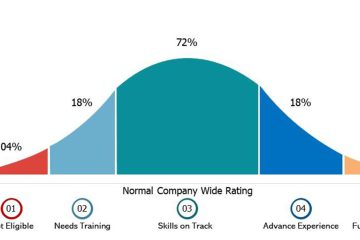HRIS (Human Resource Information System) can play a crucial role in addressing talent shortages and upskilling within an organization. Some of the most effective ways, HRIS helps an organization.
Talent Acquisition: HRIS systems can streamline the recruitment process, allowing HR professionals to manage job postings, track applicants, and identify potential candidates more efficiently. By leveraging the system’s capabilities, organizations can reach a wider pool of talent, including passive candidates, through online job portals, social media, and employee referral programs.
Talent Management: HRIS provides a centralized platform to manage employee data, performance evaluations, and skills inventories. By maintaining comprehensive employee profiles, organizations can identify skill gaps within the workforce and align training and development initiatives accordingly. This helps in planning targeted upskilling programs to address talent shortages within the organization.
Learning and Development: HRIS systems can host learning management modules that enable employees to access training materials, courses, and certifications. It allows organizations to create personalized learning paths and track employees’ progress. By leveraging the system’s reporting capabilities, HR can identify skill gaps and provide relevant upskilling opportunities to employees, either through internal training or external resources.
Succession Planning: HRIS systems can facilitate succession planning by identifying high-potential employees and creating talent pools for future leadership roles. By identifying critical positions and assessing internal talent, organizations can proactively address talent shortages and ensure a smooth transition when key employees leave or retire. The system can help HR professionals identify potential candidates, assess their readiness, and create development plans to groom them for future roles.
Performance Management: HRIS systems often include performance management modules that enable organizations to set goals, track progress, and provide continuous feedback to employees. By aligning performance goals with skill development objectives, organizations can ensure employees are actively engaged in upskilling activities to meet future talent demands.
Analytics and Reporting: HRIS systems provide robust reporting and analytics capabilities, allowing organizations to extract meaningful insights from employee data. HR professionals can analyze talent trends, identify skill shortages, measure the effectiveness of upskilling initiatives, and make data-driven decisions to address talent gaps and optimize resource allocation.
In summary, HRIS can help address talent shortages and upskilling by improving talent acquisition, streamlining talent management processes, facilitating learning and development initiatives, supporting succession planning, enabling performance management, and providing data-driven insights to make informed decisions.




